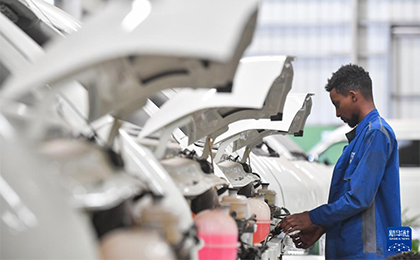

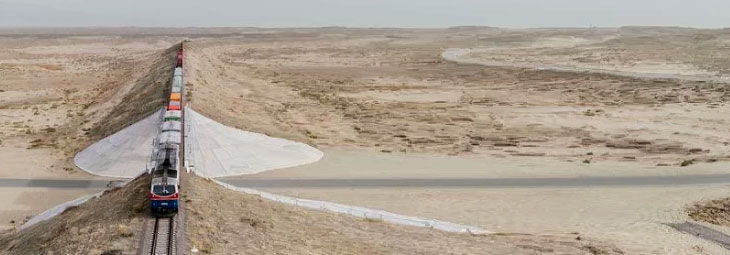
On the sunny streets of Addis Ababa, the capital of Ethiopia, Adamu, a driver, calls out to attract passengers in the newly replaced electric minibus, hoping to fill it quickly and depart.
The electric minibus driven by Adamu comes from Xiamen Golden Dragon Travel Co., Ltd. of China, exported to Ethiopia in completely knocked-down (CKD) form and assembled and launched into the market by the local Belane Kindi Metal Engineering Company. Currently, in Addis Ababa, there are about 20 operational vehicle drivers like him, replacing their old fuel-powered cars with electric minibusses from China.
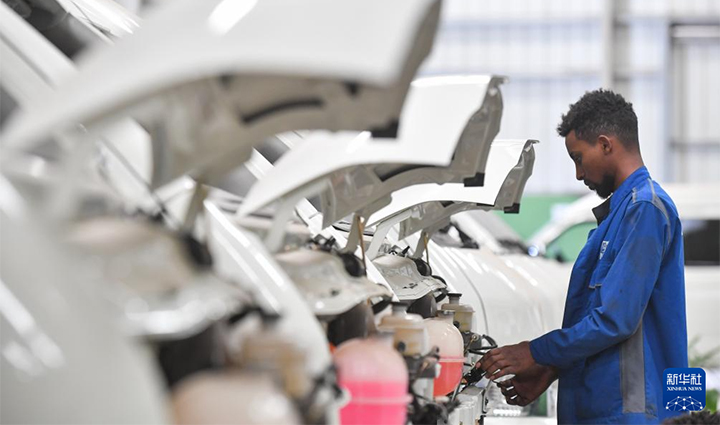
A worker was assembling electric minibuses at a factory in Addis Ababa, the capital of Ethiopia [Photo/Xinhua]
In Adamu's view, compared to traditional fuel-powered minibusses of the same level, electric vehicles have less noise, higher cost-effectiveness, and are more convenient to use. "We recharge the electric vehicle for 40 minutes during lunchtime. Unlike before, we don't need to spend money on fuel or wait in long queues at gas stations. Our daily income has also increased compared to before," he said in a recent interview with Xinhua News Agency.
"I have driven different types of vehicles, and I feel that this (electric) vehicle is very unique because it is more comfortable and can reduce air pollution," Adamu said before departing with 15 passengers, most of whom were experiencing riding in an electric vehicle for the first time.
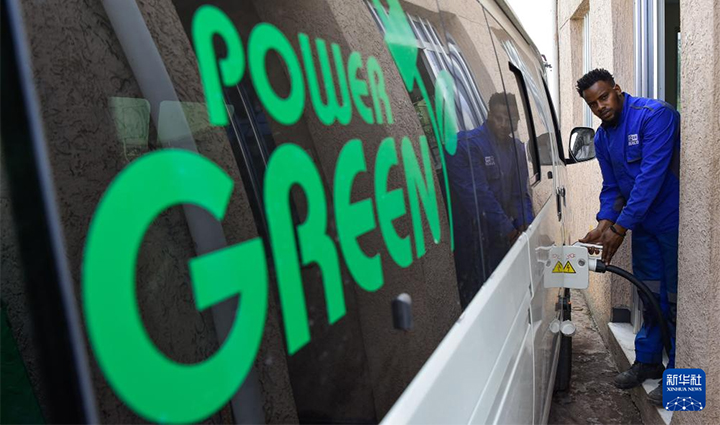
A worker was charging an electric minibus at a factory in Addis Ababa, the capital of Ethiopia [Photo/Xinhua]
Ethiopia has an average elevation of nearly 3000 meters, earning it the nickname "Roof of Africa."The capital, Addis Ababa, sits at an elevation of about 2400 meters, making it the highest-altitude city in Africa. In the local language, "Addis Ababa" means "new flower." However, the severe air pollution from vehicle exhaust in the area makes it difficult for people to associate the city with "the city of flowers." According to incomplete statistics, there are approximately 1.2 million vehicles nationwide in Ethiopia, mostly second-hand imports from Gulf countries with an average age of over 20 years. The aging of vehicles exacerbates the air pollution caused by vehicle emissions.
Data from the Ethiopian Ministry of Transport and Logistics shows that in 2023, the country spent around $6 billion on fuel imports, with over half of it used for fuel-powered vehicles. In early February of this year, the Ministry of Transport and Logistics announced plans to ban the import of gasoline and diesel vehicles in response to the global rise in fuel prices. Previously, as part of its development vision from 2021 to 2030, the Ethiopian government announced plans to import 4,800 electric buses and 148,000 other types of electric vehicles from abroad over the course of 10 years to reduce the country's reliance on fuel-powered vehicles.
In addition to assembling electric minibuses, Belane Kindi Metal Engineering Company is also assembling a 12-meter-long electric bus imported from China to meet the growing demand for electric vehicles in the country. The company's general manager, Shevaye, believes that electric vehicles have broad prospects for application in Ethiopia, and with more and more Chinese electric vehicles entering the local market, this will help Ethiopia achieve energy savings and emissions reduction goals.
Shevaye explained that since mid-2023, the company has been importing electric vehicles from China in completely knocked-down form. This import method significantly reduces transportation costs. Additionally, while the import duty for complete vehicles is approximately 15%, the import duty for completely knocked-down electric vehicles is almost zero. This is one of the measures taken by the Ethiopian government to encourage the development of electric vehicles and promote related technology transfer.
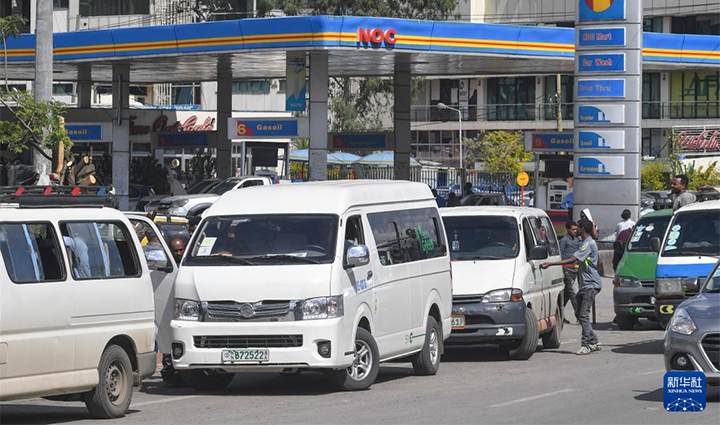
An electric minibus was travelling on the streets of Addis Ababa, the capital of Ethiopia (second from the left) [Photo/Xinhua]
"Assembling these electric minibuses also promotes local employment. Around 75 people in our company are involved in assembling the imported 216 electric minibuses," said Shevaye. Currently, half of these electric minibuses have been sold, with buyers including urban public transportation service providers and government agencies.
According to the production manager of Belane Kindi Metal Engineering Company, Abela, the first batch of 50 electric minibuses was assembled with the assistance of Chinese colleagues. Abela appreciates China's development in electric vehicle technology. "Chinese engineers came to Ethiopia and shared their knowledge of electric vehicle technology with us, including theoretical knowledge and practical skills. In the future, if we encounter any problems, we can also seek advice from our Chinese colleagues through video calls," Abela said.
Source: <http://www.news.cn/world/20240317/4a8361dcdc614449b2c8994bd87554f8/c.html>
Edited and Translated by Lu Yufei